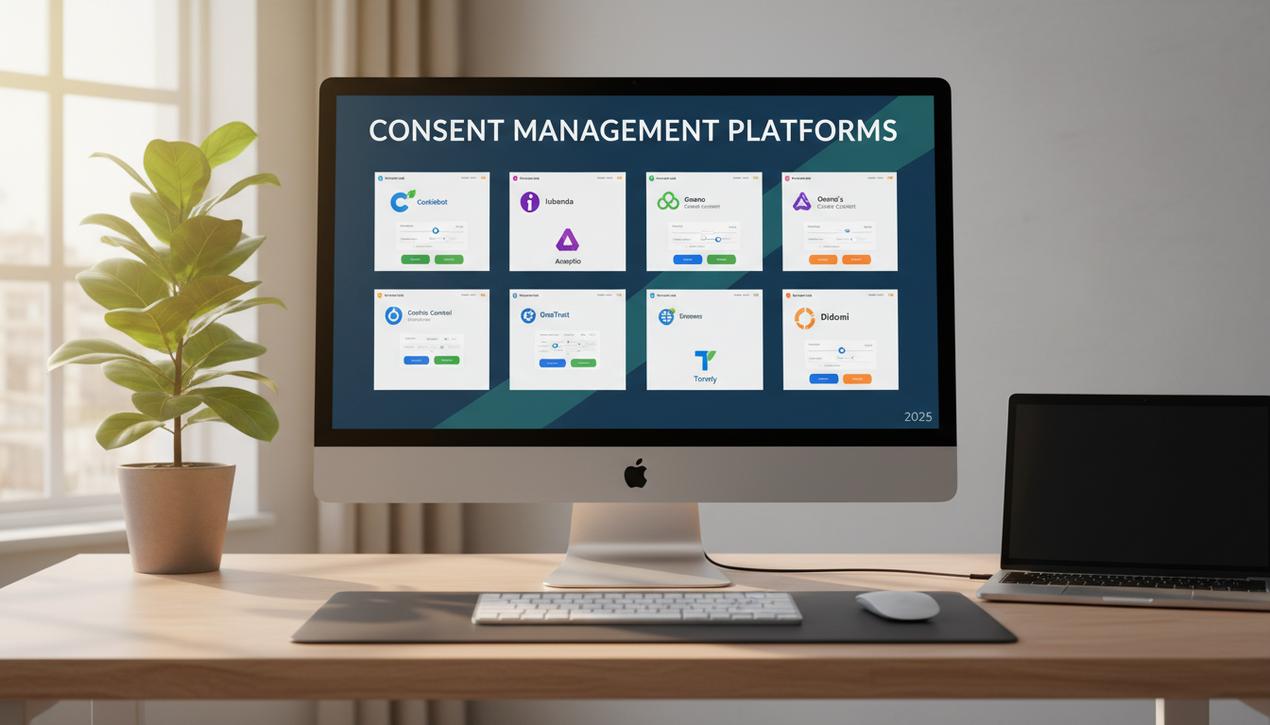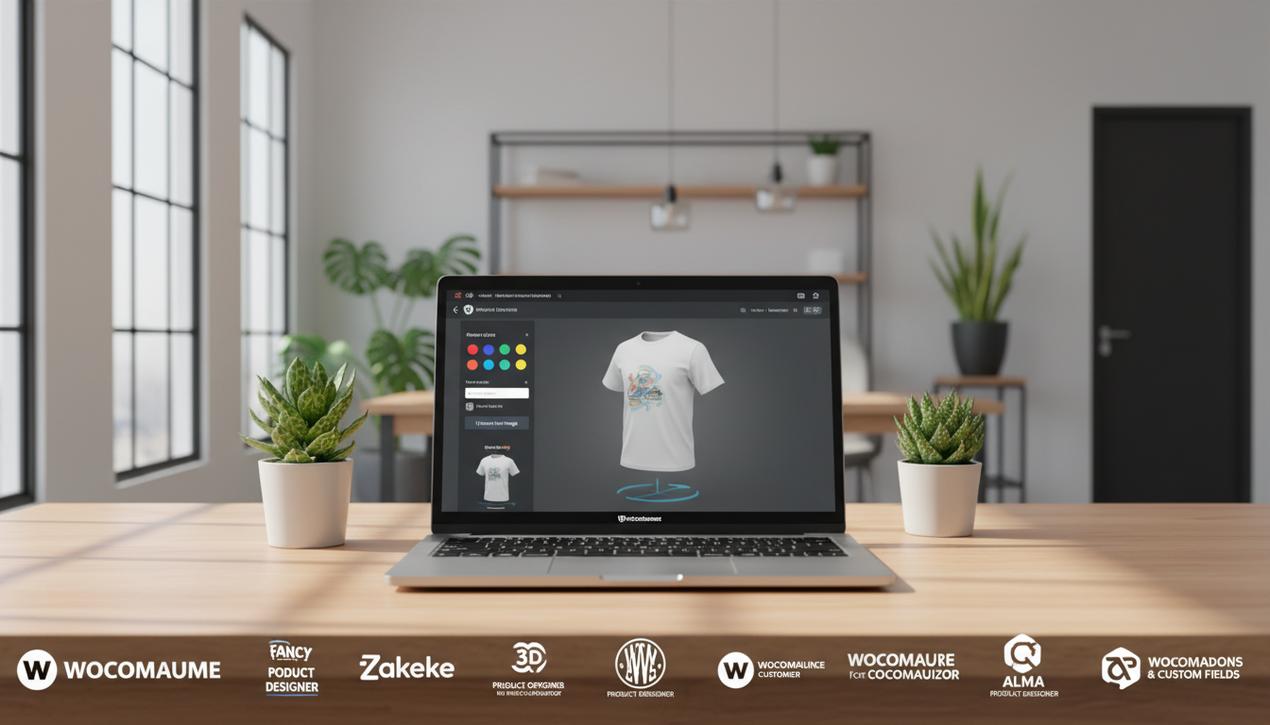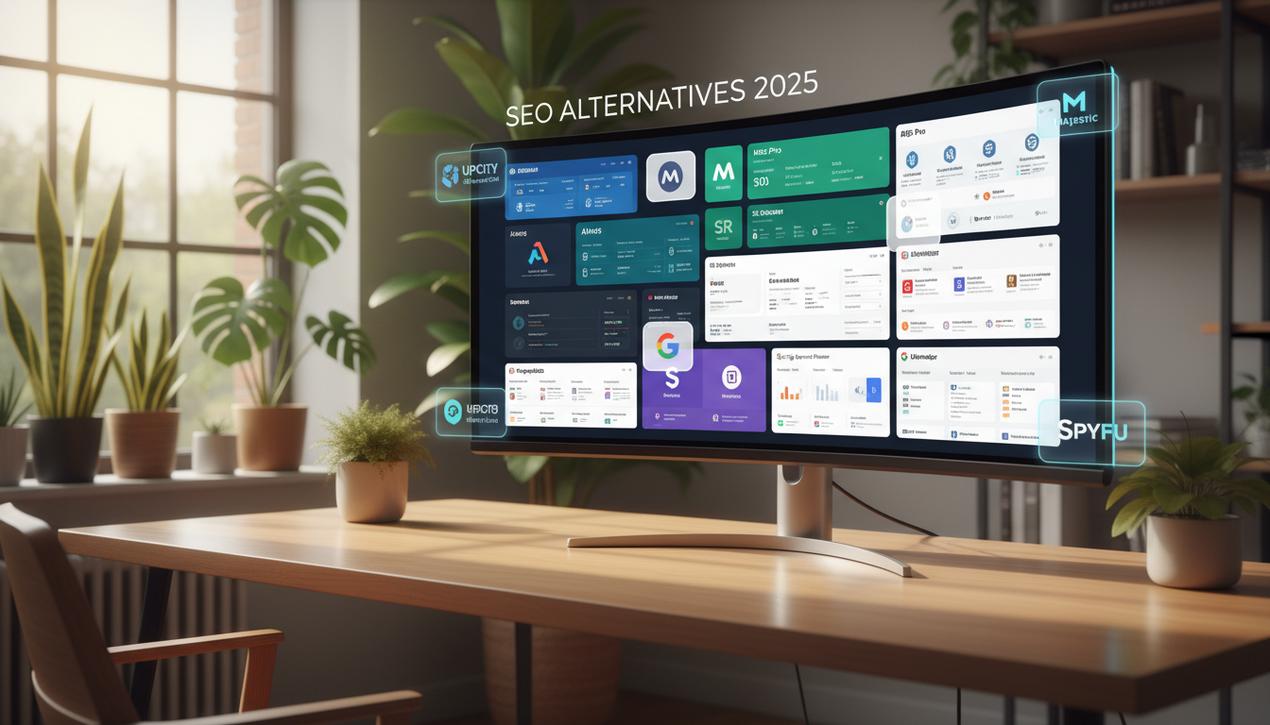Top 8 Cookie Consent Tools for GDPR & CCPA in 2025


While their name suggests a sweet treat, web cookies are a topic of concern for many internet users. These small data files track browsing habits and preferences, often creating detailed user profiles. In fact, recent studies show that over 75% of consumers are worried about how companies use their online data. For years, many sites collected this information without explicit permission, but the era of GDPR (General Data Protection Regulation) changed everything. The ePrivacy Directive, often called the “cookie law,” now requires clear, informed consent from users before any non-essential cookies are placed on their devices. The GDPR further mandates that you must log every consent and allow users to withdraw their approval at any time. To navigate this complex legal landscape, a consent management platform (CMP) is essential. Here are the eight best tools to help you manage cookie consent effectively in 2025.
Why a Robust Cookie Consent Tool is Non-Negotiable
In today’s data-driven world, simply having a cookie banner is not enough. Regulators are cracking down on non-compliant practices, with fines reaching millions of euros. The trends for 2025 point towards even stricter enforcement, particularly against “dark patterns”—deceptive user interfaces designed to trick users into giving consent. A high-quality CMP is no longer just a legal checkbox; it’s a cornerstone of user trust and a vital business asset.
Building User Trust
A transparent and user-friendly consent process shows visitors that you respect their privacy. When users feel in control of their data, they are more likely to trust your brand, spend more time on your site, and convert. Conversely, a confusing or aggressive cookie banner can lead to high bounce rates and damage your reputation. Building this trust is especially critical as the digital world moves away from third-party cookies, making first-party data collected with explicit consent more valuable than ever.
Ensuring Global Compliance
Data privacy laws vary significantly across the globe. Beyond the EU’s GDPR, there’s the California Consumer Privacy Act (CCPA), Brazil’s LGPD, and many others. A sophisticated CMP can automatically detect a user’s location and display the appropriate consent banner and options, ensuring you remain compliant no matter where your audience is. This geo-targeting capability, crucial for any global expansion strategy, saves you from having to manually manage different legal requirements.
The 8 Best Cookie Consent Management Platforms
Choosing the right CMP depends on your website’s complexity, audience, and budget. Here is a detailed comparison of the top platforms available today.
1. Cookiebot
Cookiebot is a popular choice that helps automate the entire consent process. It performs regular scans of your website to detect and categorize all cookies and trackers, ensuring your cookie declaration is always accurate. The platform provides a highly customizable yet simple consent banner that gives users clear choices. A key feature is its monthly report on data processing, giving you full control over your data. With a legal cookie duration of twelve months, Cookiebot automatically renews consent when a user returns after this period, keeping your compliance efforts on autopilot.
2. Iubenda
If you need to get compliant quickly, Iubenda is an excellent solution. This platform specializes in generating comprehensive legal documents, including privacy and cookie policies, in just minutes. It supports regulations from multiple countries, making it ideal for international websites. Iubenda’s policies are automatically updated whenever the law changes, providing peace of mind. Beyond legal text, it offers a customizable cookie banner and a dashboard to track and record user consents, covering all essential compliance needs for e-commerce sites, SaaS platforms, and apps.
3. Axeptio
Axeptio takes a unique, user-friendly approach to consent. It replaces the traditional, dull cookie banner with a more engaging and interactive widget. This playful interface is designed to educate visitors about data collection and empower them to make informed choices in a more personalized way. The goal is to make the consent process a positive part of the user experience. Axeptio integrates seamlessly with over 1,000 applications, including Google Tag Manager, Google Analytics, and Mailchimp, and offers a free plan that is fully compliant with European legal requirements.
4. CookieYes
CookieYes has become a leading CMP known for its simplicity and powerful features. It is designed for businesses of all sizes, offering automatic website scanning to identify and block cookies before consent is given. The platform provides a fully customizable banner to match your brand’s look and feel. It also maintains a comprehensive consent log to serve as proof of compliance. Critically, CookieYes supports Google Consent Mode v2, helping you balance data privacy with your advertising needs and your URL tracking in GA4 without compromising user trust.
5. Cookie Consent (by Osano)
Known as one of the most popular open-source solutions, Cookie Consent is a go-to for developers and businesses looking for a free, reliable tool. It supports data privacy laws in over 40 countries and provides consent pop-ups in 34 languages, making it highly versatile for international sites. Cookie Consent stores all consent records and delivers them on demand. You can easily configure your cookie banner with custom colors, layouts, and text to align with your website’s design.
6. Cookie Control
Cookie Control excels at providing persistent transparency. It places a recognizable icon on your pages at all times, allowing users to manage their consent preferences whenever they wish. The solution can detect a visitor’s location to decide whether to display the cookie banner, a useful feature for sites with audiences both inside and outside the EU. It also offers multilingual support to present legal text in the user’s preferred language. With this tool, you can create custom cookie categories to ensure users make a truly informed decision.
7. OneTrust
OneTrust is an enterprise-level platform that offers a comprehensive suite of privacy, security, and governance tools that go far beyond cookie consent. It scans your website to identify all tracking technologies and verifies their compliance with GDPR. Its consent banner features a detailed list of cookies that users can opt into individually, all within a custom-branded design. In the backend, OneTrust provides robust consent logging and detailed compliance reports, making it the solution of choice for large corporations with complex data privacy needs.
8. Usercentrics
Usercentrics is another powerful platform designed for enterprises and publishers managing consent across multiple digital properties, including websites and mobile apps. It is built to handle high traffic volumes and complex legal requirements with ease. The platform offers granular controls and extensive customization options to create a seamless user experience that doesn’t sacrifice compliance. Its robust analytics and A/B testing features also allow businesses to optimize their consent banners to achieve higher opt-in rates without resorting to manipulative designs.
What to Look for in a Cookie Consent Tool
When selecting a platform, consider these essential features:
- Automatic Scanning: The tool should be able to automatically scan your site to find and categorize all cookies and trackers.
- Granular Control: Users should have the ability to consent to specific cookie categories rather than just an “all or nothing” choice.
- Geo-Targeting: The platform must display the correct consent model based on the user’s geographical location (e.g., GDPR opt-in vs. CCPA opt-out).
- Consent Logging: A secure and auditable log of user consents is mandatory to prove compliance to regulators.
- Customization: You should be able to customize the banner’s appearance to match your brand identity and build trust.
- Third-Party Integrations: The tool must integrate smoothly with your existing technology stack, especially Google Tag Manager and analytics platforms.
Beyond being a legal obligation, transparent cookie consent is a fundamental part of building a trustworthy relationship with your audience. It reassures visitors that you value their privacy, which encourages them to engage more deeply with your content and services. By implementing one of these top-tier solutions, you can not only avoid hefty fines but also enhance user experience and increase your conversion rates in an increasingly privacy-conscious world.




